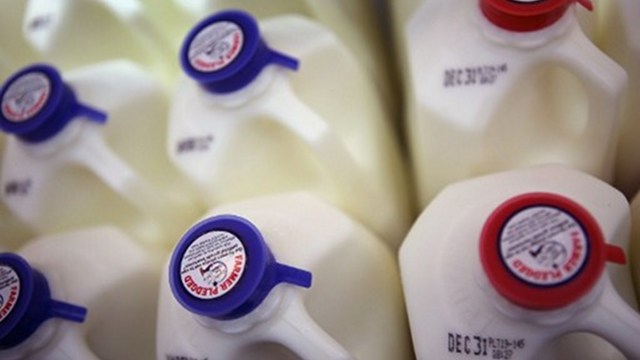SUMMARY
This is AI generated summarization, which may have errors. For context, always refer to the full article.

MANILA, Philippines – Have you ever heard of the Milk Code?
Yes, there is a Philippine law on milk.
Implemented in 1986, the Milk Code or Executive Order 51 ensures the protection of breastfeeding. In the Philippines, it institutionalized the International Code of Marketing of Breastmilk Substitutes which is a World Health Organization (WHO) resolution passed in 1981.
Breastfeeding plays an important role in reducing infant mortality, according to Dr Anthony Calibo, head of the Philippines Newborn Care Program Family Health Office of the Department of Health (DOH). (READ: Hungry and pregnant in the PH)
Calibo emphasized that most infant deaths occur in health facilities where infants were not properly breastfed. (READ: Why you should care about breastfeeding)
Undernutrition remains to be the underlying cause of preventable child deaths in the Philippines. (INFOGRAPHIC: Top killer diseases among malnourished kids)
As of 2011, a survey conducted by FNRI shows that 20.2% of children below 5 years are underweight, while 33.6% are stunted. (READ: Addressing malnutrition in the PH)
Poor breastfeeding practices, wherein infants are not exclusively breastfed for birth to 6 months, often lead to the malnourishment of children. (WATCH: Peter Pan and never growing up)
Violating the code
However, since its implementation, the Milk Code has faced strong opposition from the milk industry and countless of challenges on legislative and local levels.
In the past two years, two bills have been passed that significantly weaken the regulations of the Milk Code – House Bill 2917 by Representative Josephine Veronique Lacson-Noel and Senate Bill 671 by Senator Loren Legarda.
As a response, 5 new bills – presenting improved and comprehensive versions of EO 51 – were filed in both Houses during the 16th Congress. These include House Bill 2994 by Representative Philip Pichay and Senate Bill 1303 by Senator Jinggoy Estrada.
The latter is considered a “good” bill but sets prohibitions only for advertising and marketing products intended for infants 0-24 months, and contains inconsistencies within the bill. (READ: Congressmen urged to keep Milk Code intact)
According to World Vision, a staunch advocate of breastfeeding, the Philippine government needs to improve the enforcement of the Milk Code instead of repealing its existing provisions.
Milk industry

WHO identified weak or poor monitoring systems as the key problem in promoting the Milk Code.
In the Philippines, the lack of funding makes it difficult to report violations of the Code.
Despite having only two reported violations since 2006, hidden violations continue to challenge the popularization of the Milk Code.
“The milk industry stands as the main opposition to the Milk Code given its strong reliance on consumer recall and awareness to increase its sales,” Calibo argued.
False promises and claims to the use of formula milk – often used in advertising and promotion – can greatly influence mothers. (READ: Role of dads in breastfeeding)
Calibo explained that health professionals often fall prey to the dirty tactics of milk companies. They receive incentives such as travel, food, and non-monetary items in exchange for the promotion of breast milk substitutes. These violations often go unreported.
“Few exceptional milk companies do adhere to the Milk Code, but the common rule is to not abide by it, or pretend that the Milk Code does not exist,” Calibo said.
Advocates like Calibo stressed the need to promote breast feeding especially during disasters, wherein donations of formula milk are rampant. Such donations run contrary to the “No Milk Donation” provision of the Milk Code.
Collective action
“Milk Code monitoring is not just the responsibility of the Department of Health (DOH), but the responsibility of the public,” Calibo emphasized.
“If a lot of infants have been put to the breast we would not have wasted lives. A breastfed child is an investment of the country,” he added.
The DOH urges the public to contribute to the efforts of promoting the protection of breast feeding.
Collective efforts, through partnerships with local government units (LGUs) and public vigilance, are the most effective means to protect the Milk Code against violations.
The public is encouraged to report violations to Milk Code Philippines or write directly to the Food and Drug Administration.
Ordinary citizens can examine advertisements that undermine breast feeding or give false claims.
Moreover, health professionals actively discouraging breast feeding – hence violating the code – can also be reported by including their name, institution, time and place where the violation was made. – Rappler.com
You can learn more about the Milk Code here. You can also report violations here.
Baby and mom photo from Shutterstock.
Add a comment
How does this make you feel?
There are no comments yet. Add your comment to start the conversation.